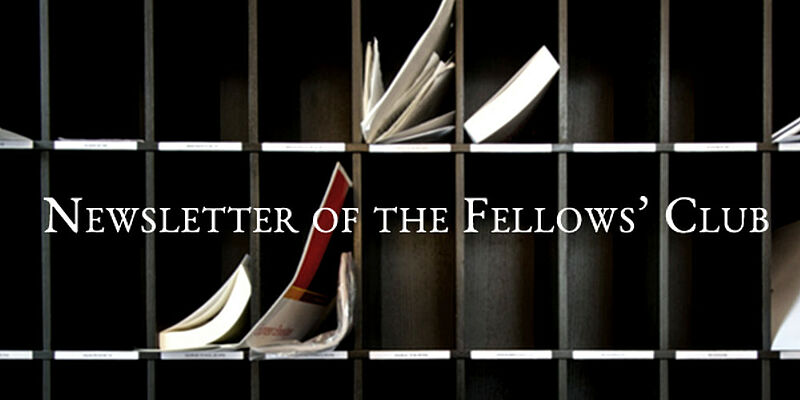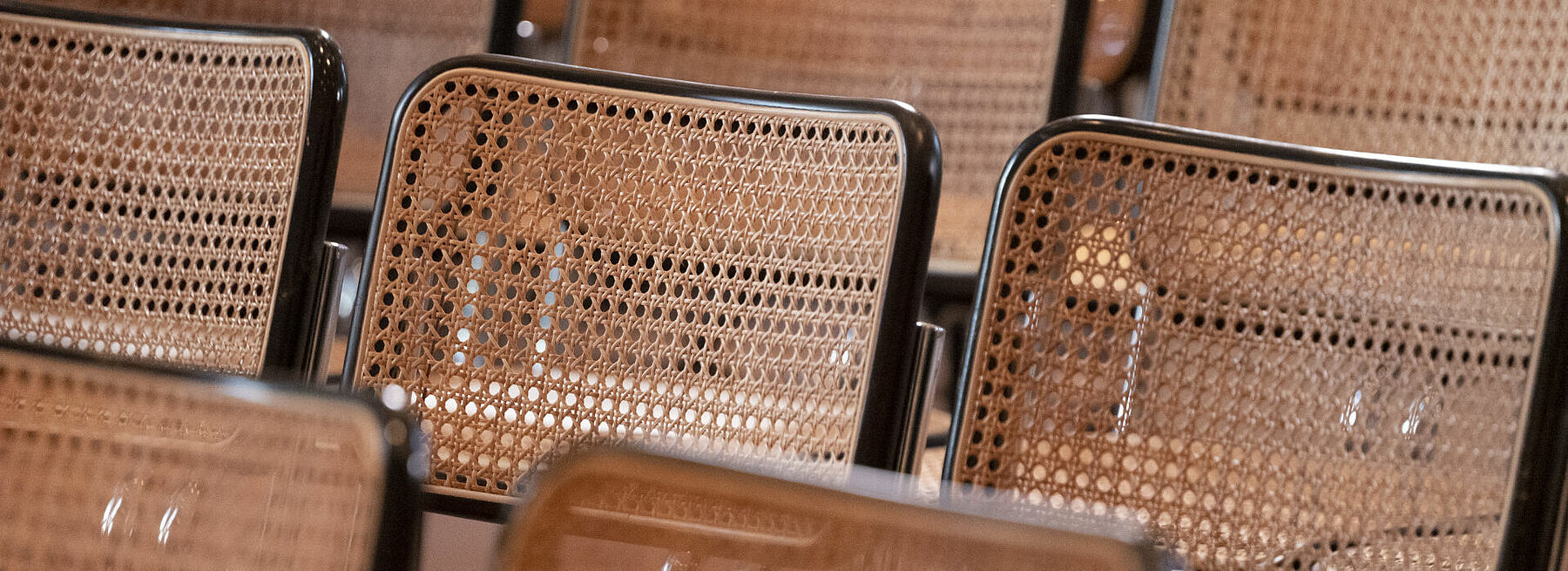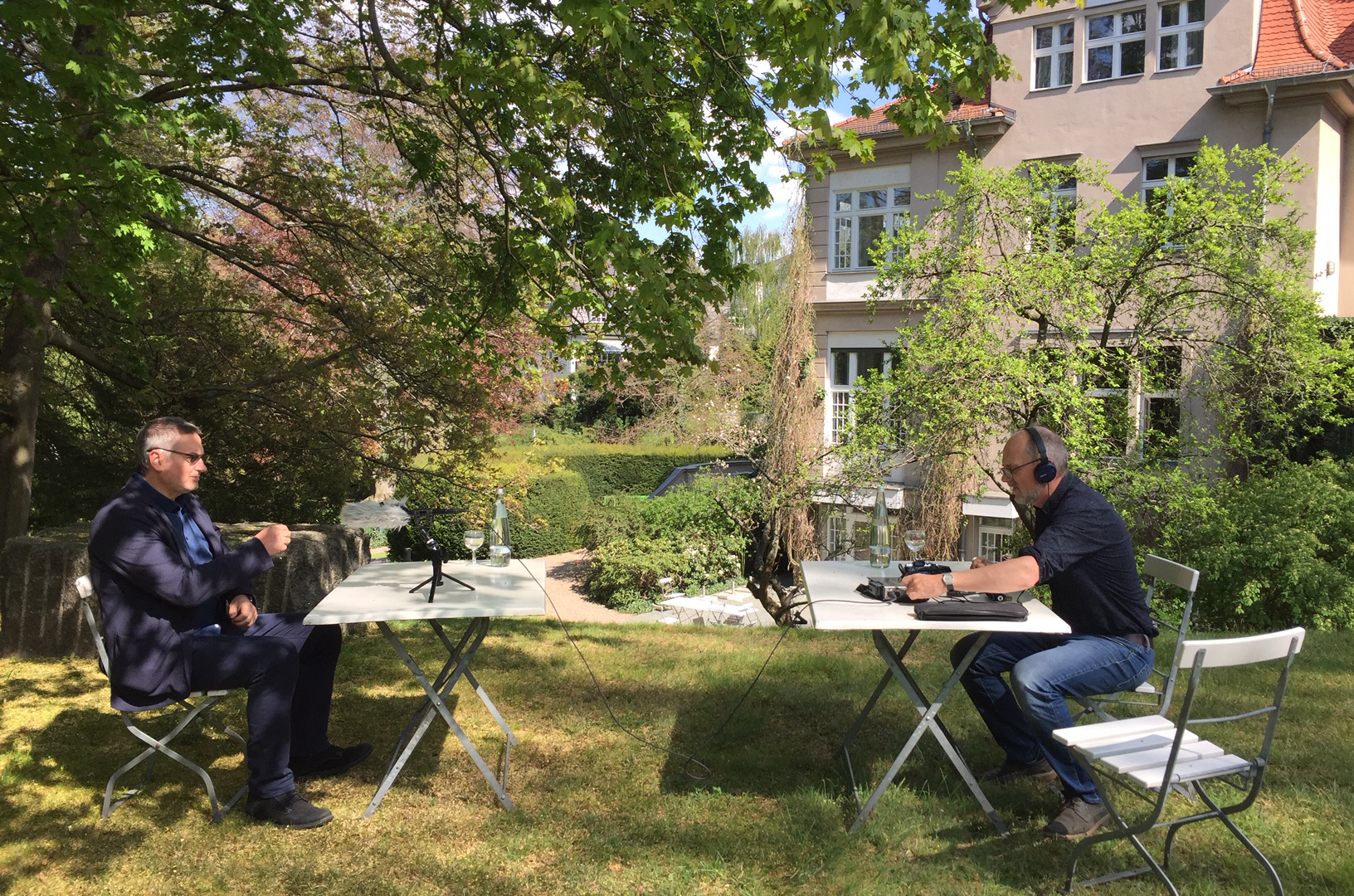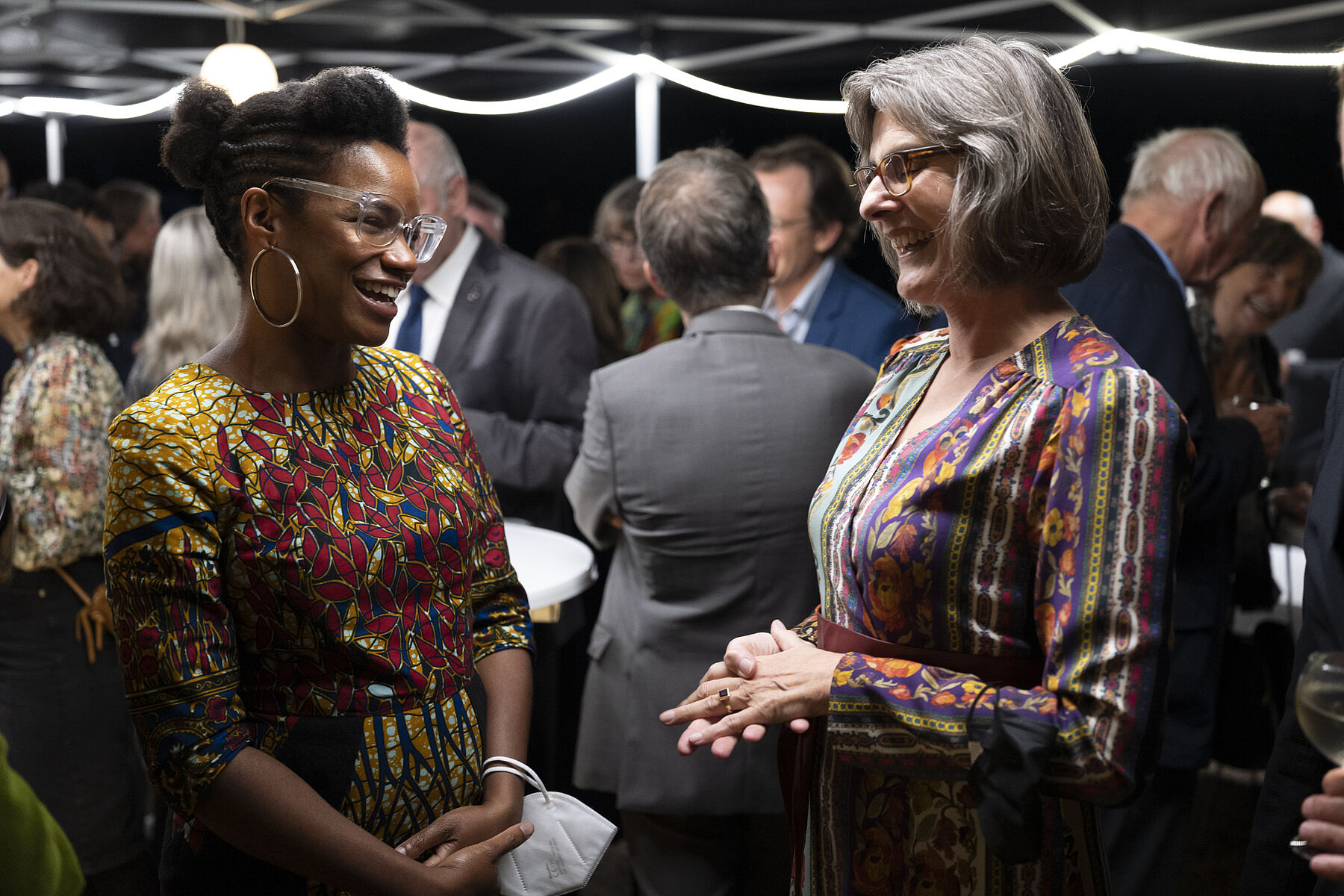
Editorial
In 1348, the plague known as the Black Death reached Florence, the city “beautiful more than all others in Italy”, and put it in a state of “general fright”. The results are devastating: 100,000 deaths are to be mourned. The epidemic shuts down the city’s life, wipes out entire families, and leads to impiety, selfishness, and the decline of morals. This is how Giovanni Boccaccio describes the pandemic situation in his collection of novellas, Il Decamerone, in which he does not neglect to include gruesome medical details.
The Wissenschaftskolleg was not gripped by “general fright”, much less a decline in morals, but the current Covid pandemic has presented great challenges to its work – in three ways: first, it has greatly encumbered international mobility; second, it has greatly limited personal exchange among those present at the Kolleg; and third, although it has lent enormous importance to specific variants of science, especially applied epidemiological and medical research, but not, at first glance, to the model of individual basic research in complete freedom, without time pressure, and without the requirement of immediate practical value, the model for which the Kolleg stands.

While contagious diseases easily overcome national borders and advance “without stopping, spreading from place to place, bringing misery” to all continents, the pandemic blocks human mobility very substantially. Closed borders, tightened visa regulations, and irregular air traffic have massively impeded the Fellows’ arrival in and departure from Berlin. Since March 2020, the Fellow Services have had to mobilize substantial powers, know-how, and connections to bring researchers from all over the world to Berlin. So far, they have almost always been successful, even if some Fellows arrive late and others must endure enormous bureaucratic or logistical impositions. Only a few shy away from the risk of a stay abroad or end their fellowship prematurely. Thus, the series of annual Fellow cohorts begun in 1981 has not been interrupted, and even the first Iso Lomso Fellows can come to Berlin from their African home countries. In the pandemic, in which many Institutes for Advanced Study in the world close their doors or operate solely with “digital fellowships”, what is otherwise taken for granted turns into an achievement.
In the Decamerone, ten virtuous young people decide to flee a plague-ridden city for safety on a country estate. They spend two weeks withdrawn in quarantine, whiling away ten days by telling each other stories, a total of ten each day. The Wiko class of 2019/20 acted similarly in its domicile on the fringes of Berlin when, in March 2020, the first lockdown was imposed on the city and “skeleton operations” were declared for the Wissenschaftskolleg. All scientific activities and the language courses were carried out online; the staff worked primarily from home; all visits on campus were cancelled; and the restaurant was converted to a delivery service. Despite closed libraries throughout the city, the library team was nonetheless able to provide the Fellows with digital literature. Fortunately, the Fellows already knew each other well before they saw each other on Zoom tiles for the first time. In this way, debates and relationships could be continued and new ones begun. Our event specialist Frank Nörenberg, who at top speed developed from a sound engineer into an all-around video artist, and the colleagues from our IT and public relations departments have set up ever new formats during the course of the pandemic – from complex hybrid sessions through ever-more professional video recordings to live streaming. The first series of animatedly discussed Fellow presentations on current topics were titled – is it any wonder! – Decamerone Series and Thinking the Virus

When the “skeleton operations” ended, a time of constantly changing hygiene concepts began; they were adapted to ever-new framework conditions, primarily thanks to Petria Saleh’s indefatigable efforts. In all departments, a maximum of creativity and solutions were needed for ever-new problems. Thus, the monthly selection meetings are now held digitally so that the non-resident Permanent Fellows can participate regularly. The first Academic Advisory Board meetings in pandemic times was cancelled; the second was initially postponed and then reduced to a digital short form, which, however, proved to take a long time in reality. The third was held in presence again, in a slightly reduced group and under “2G” conditions (participants had to be vaccinated against or recovered from Covid). In times when the restaurant can cautiously reopen, it becomes a constantly changing field of experimentation: Fellows are assigned a time slot to pick up their nicely set tablet. Places at tables are set 1.5 meters apart. Intermittently, the Large Colloquium Room becomes a refectory. The terrace and garden turn into an open-air restaurant, where Fellows dine – often with heavy coats and fleece blankets. Indeed, the garden, like at the country estate near Florence described by Boccaccio, becomes the most important site of human and scientific encounter. It may be that nowhere else has the Kolleg’s idea of personal exchange been struggled for as bitterly – and sometimes to the freezing point.
Cases of Covid contacts and infections did not fail to appear, and so quarantine rooms had to be provided again and again and the Fellows there had to be cared for completely. Katharina Wiedemann created an elegant accessory: the fabric Wiko face mask, which became a collector’s item after the requirement to wear FFP2 masks was introduced. The Reception metamorphosed into a test station. General practitioner Dr. Kowalski vaccinated some Fellows. The Rector’s Office organized vaccination campaigns for the staff. The parents among the Fellows have to do their best as assistant teachers, and the children have to try out the Wiko campus as a playground. In early summer 2020, the Fellow and priest Felix Körner even baptizes a Fellow baby on the terrace of the main building.
Nearby Grunewald forest is often the last resort for social life. Walks offer the chance to encounter and talk with each other. But Fellows also jog and observe nature there, alone or in groups. In the face of such practices, George Khalil invents the “walkshop” and the artist Reetu Sattar from Bangladesh works up a performance project about forest walks as essential life- and self-experience.

In the pandemic, science becomes important for survival, and researchers play a previously unknown role in politics and the public realm. Some of the current and former Fellows are counted among the group of experts who help steer the world through the pandemic. Among them are the Bochum legal scholar Stefan Huster (Fellow 2010/2011), who was recently appointed Chairman of Germany’s Federal Commission for the Evaluation of the Infections Protection Law – you can read an interview with him in this issue. In the United States, the epidemiologist Alison Galvani (Fellow 2006/2007), a member of the Yale Center for Infectious Disease Modeling and Analysis, was among the frequently consulted experts. In the current Fellow year, with Sanyu A. Mojola and C. Jessica E. Metcalf, two leading pandemic experts from Princeton are at the Kolleg; here, you can watch their joint evening colloquium. Many other Fellows and former Fellows – Christoph Möllers, Oliver Lepsius, Holger Spamann, Dieter Grimm, Karin Mölling, David Stark, Elena Esposito, and Dirk Helbing – made public statements.

In the Decamerone, the Florentine plague wave ends after ten times ten novellas. Panfilo, the “king” of the tenth day, suggests that the group travel back to Florence and makes a positive summary: “For if I knew well to observe, then despite all the merry stories that perhaps stimulate sensual enjoyment, despite our constantly good eating and drinking, despite our play and singing – which are all things that might lure weak natures to less honorable behavior – no gesture, no word, no act, neither from your nor from our side, has come that deserves reproach. Rather, everything that I saw and heard seemed to me to testify to constant decency, constant harmony, and brotherly familiarity.”
The last three Fellow cohorts have also behaved irreproachably under sometimes unfavorable circumstances. But the pandemic of the 21st century will not pass by so quickly. It will trigger many changes to the world, and the Kolleg will have to readjust its new role. No one can know what the post-pandemic world will look like, but it can not be excluded that the vision of a globe networked by mobility and circulation may have failed. It is also foreseeable that digital communication will continue its victory march against the exchange among people personally present. Both of these results could be seen as questioning the principles of the Wissenschaftskolleg – or rather as a confirmation of its founding idea! From the start, the Kolleg was conceived as an exception to the academic system, and it might be that all the more emphatically in the future. As a site of encounters between widely separated cultures of knowledge, as an island of encounter between creative people, and as a space for the in no way outmoded idea of science that not only contributes to solving, under pressure, the most urgent problems of its time, but that also recognizes with distance and calmly those problems that the world does not yet have an inkling that it faces. Precisely this could prove important for survival in future crises.
Barbara Stollberg-Rilinger, Rector of the Wissenschaftskolleg, and Daniel Schönpflug, Head of Academic Programs
Translated by Mitch Cohen